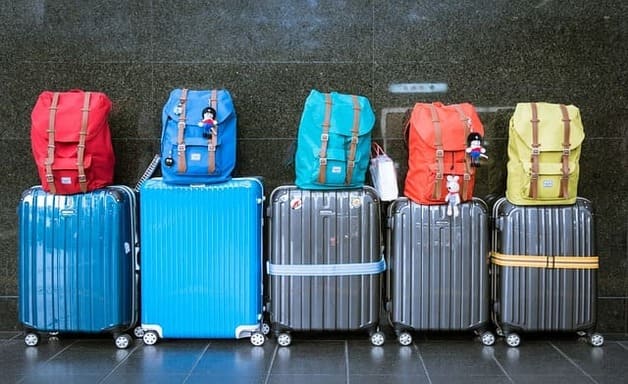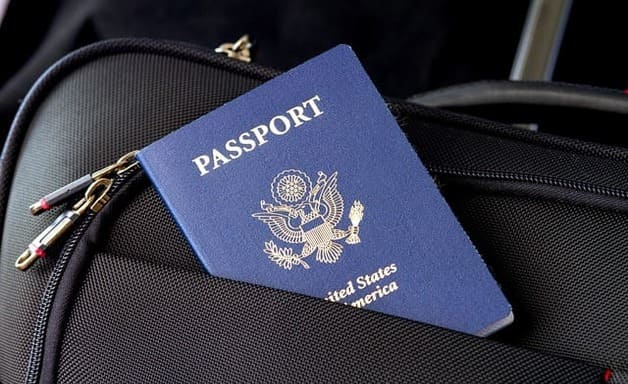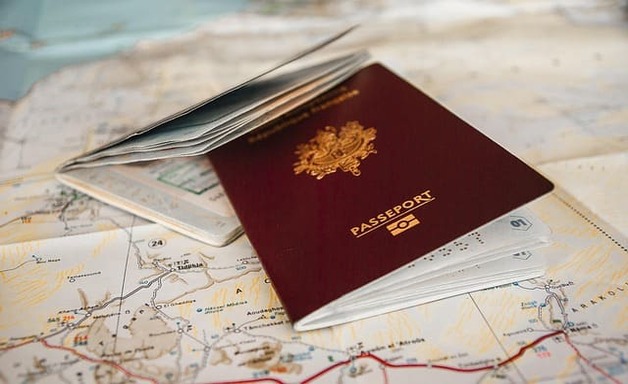
Traveling to Israel requires careful attention to customs regulations for a smooth entry. This guide provides essential details on customs declarations, security checks, and money declaration rules.
It also covers tax-free limits and offers instructions on completing the necessary declaration forms. Following these guidelines guarantees a hassle-free experience when entering Israel.
Israel Border Control and Immigration Entry Requirements
Upon arrival in Israel, you may undergo security screenings, including questioning and baggage checks.
You might be subject to intensive checks if you have:
- A travel background that may be considered suspicious
- A history of public criticism of Israel
- Palestinian or Arab ancestry
Occasionally, travelers face extended checks at border control, leading to delays that could last several hours. While this isn't a common occurrence, be aware that it can happen.
You should always carry necessary documentation like your passport and an ETA for Israel.
What to Declare When Entering Israel
When entering Israel, you need to declare certain items to ensure adherence to customs regulations.
Goods you must declare when entering Israel
There are a few important items and conditions that will require you to go through the Red Channel for customs declaration:
- Items exceeding the duty-free limits: If you're carrying more than the specified amounts of alcohol, tobacco, food, or other goods, you’ll need to declare them.
- Commercial goods: Any goods for resale, or items that appear to be for commercial purposes, must also be declared.
- New personal items: High-value electronics, luxury goods, or anything that appears to be new and unused (like new computers or phones).
Goods you don’t need to declare when entering Israel
You do not need to declare the following items and can enter Israel through the green customs channel:
- Alcoholic beverages: Up to one liter of hard liquor and up to two liters of wine (passengers aged 17 and over only)
- Tobacco products: Up to 250 grams of tobacco (passengers aged 17 and over only)
- Gifts and other items: Commodities with a total value of up to 200 USD (excluding alcoholic beverages, alcoholic perfumes, tobacco, and television sets). This valuation is subject to the assessment of the customs officer at the entry terminal.
- Food: Up to 3 kilograms, provided that no single type of food exceeds one kilogram
- Personal items: Such as cameras, binoculars, personal jewelry, musical instruments, sporting and camping equipment, bicycles.
If you’re carrying more than these amounts, or if your goods are not listed under duty-free or taxable items, you’ll need to make a declaration. In this case, you’ll have to enter Israel through the red customs lane.
Items prohibited from entry to Israel
Importing certain items to Israel without a proper license is strictly forbidden, including:
- Plants
- Firearms
- Raw meat
- Raw materials
- Counterfeit currency
- Knives not intended for personal use
Vehicles for personal use may be imported.
Currency declaration for Israel
Travelers entering or leaving Israel must declare certain amounts of money to ensure compliance with financial regulations. The key thresholds for currency declaration are as follows:
- General rule: If you’re carrying 50,000 NIS (New Israeli Shekels) or more, you must report the amount upon entering or leaving Israel.
- Specific border crossings: The declaration threshold is lower, at 12,000 NIS or more, when passing through Nizana, Erez, Jordan River, Yitzhak Rabin, or Taba Border crossings.
- Allenby crossing: The amount requiring declaration is 2,000 Jordanian Dinars or more at this crossing point.
Additionally, you must declare even if you’re traveling with family or other companions, under the following rules:
- Individual ownership: If one traveler holds funds above the reporting threshold, they must declare regardless of their travel companions.
- Joint ownership: If multiple travelers jointly own funds where each individual's share does not meet the threshold but the total does exceed it, a declaration is still required.
If you have any uncertainty about whether to declare funds, we advise you to consult with customs officials at the border crossing.
Special Regulations for Returning Israelis
If you’re an Israeli citizen or a returning resident, there are specific allowances and exemptions for goods you can bring back to Israel:
- New immigrants: you’re entitled to bring in certain goods duty-free within the first 36 months of their arrival in Israel.
- Returning residents: if you’re returning to Israel after being abroad for more than a year may also enjoy exemptions or reduced duties on personal items brought back into the country. You might need to submit form 130.
Be sure to check the latest guidelines from Israel's Tax Authority to understand your specific entitlements if you're a returning resident or new immigrant.
How to Complete the Declaration of Personal Import of Goods (Form 130)
The Declaration of Personal Import of Goods (Form 130) is required for travelers bringing goods into Israel without an invoice, or for those eligible for tax exemptions, including new immigrants or returning residents. This form helps declare the type, quantity, and value of goods you're importing.
You can download it from the Israel Tax Authority website or obtain it at customs. Along with the form, you may need to submit supporting documents such as invoices, receipts, and a packing list. After submitting the form, customs will assess whether any duties or taxes apply to your goods.
Key Points to Remember when Entering Israel
To make your entry into Israel as smooth as possible, follow these tips:
- Know the rules: Familiarize yourself with the customs regulations before your trip, especially if you plan to bring in valuable goods or large amounts of currency.
- Pack strategically: Be mindful of the items you pack. If in doubt, declare it to avoid potential fines.
- Be honest: Always declare goods that exceed the limits. Failure to do so could result in penalties or fines.
- Consult customs: If you’re unsure about any item, speak to a customs official before you enter Israel. It’s better to ask than risk an issue later.
With proper preparation, you can avoid unnecessary delays and enjoy your visit to Israel!


